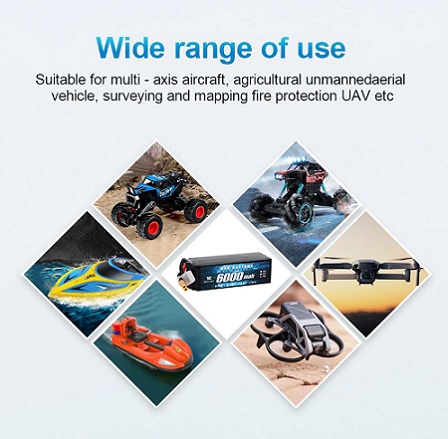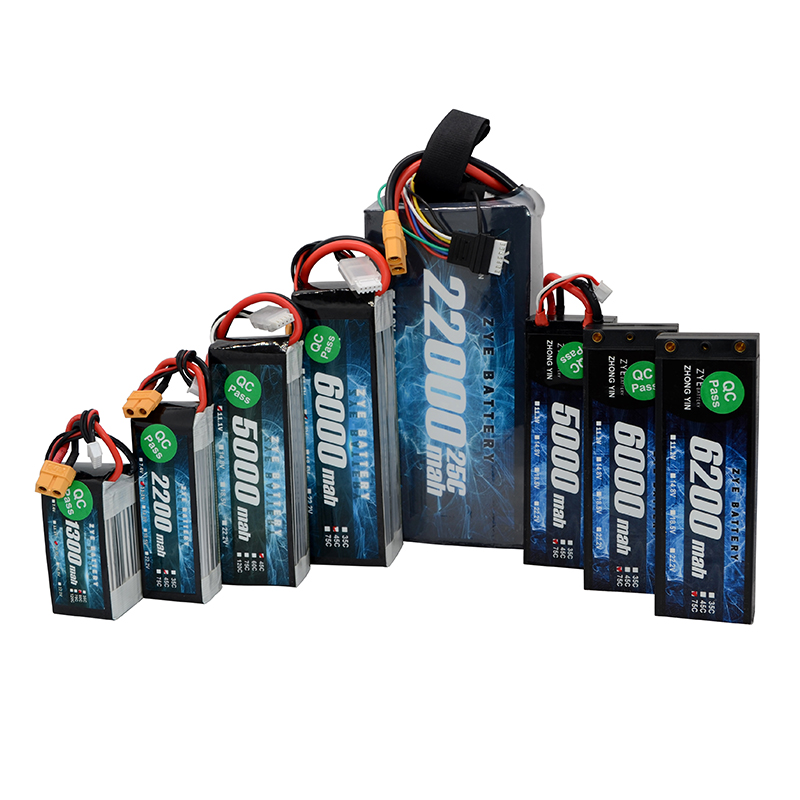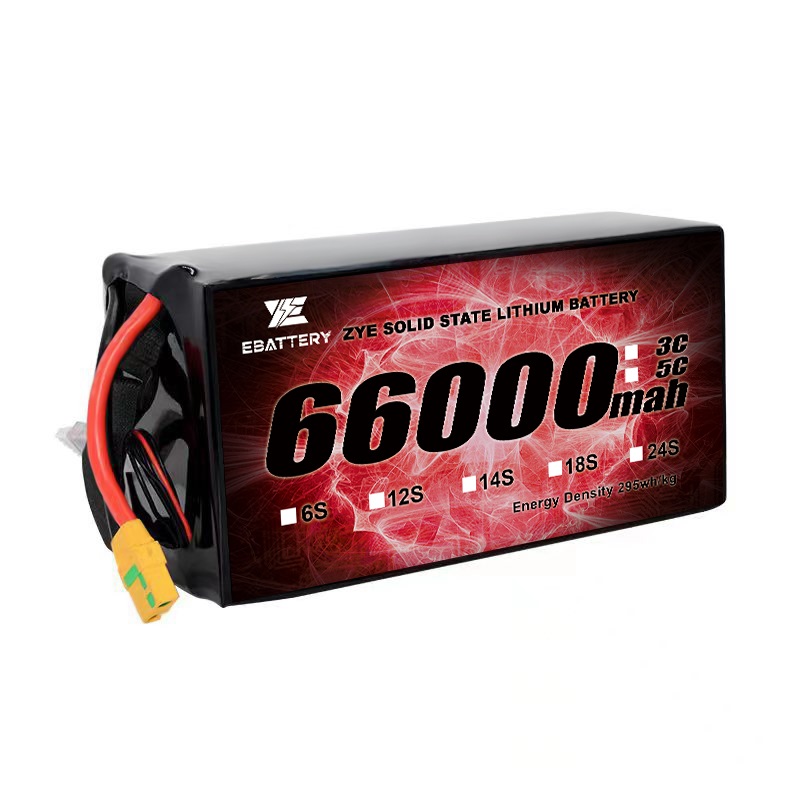Are Hard Case LiPo Batteries Safer Than Soft Packs?
2025-07-01
When it comes to powering our beloved RC vehicles, drones, and other electronic devices, LiPo batteries have become the go-to choice for many enthusiasts. However, a common debate among users is whether hard case LiPo batteries are safer than their soft pack counterparts. In this comprehensive guide, we'll delve into the key differences between these two types of LiPo batteries and explore their safety aspects to help you make an informed decision for your next purchase.
Crush Protection: Do Hard Case LiPos Prevent Physical Damage Better?
One of the primary advantages of hard case LiPo batteries is their enhanced protection against physical damage. The rigid outer shell provides an extra layer of defense against impacts, crushes, and other forms of mechanical stress.
Impact Resistance in Hard Case LiPos
Hard case LiPo batteries are designed to withstand the rigors of high-impact activities, such as RC car racing or drone crashes. The durable plastic casing acts as a shield, absorbing and distributing force across the surface, reducing the risk of internal damage to the battery cells.
Soft Pack Vulnerabilities
In contrast, soft pack LiPo batteries rely solely on their flexible plastic wrapping for protection. While this design offers advantages in terms of weight and size, it leaves the battery more susceptible to physical damage. A direct impact or crushing force can potentially rupture the cell, leading to safety hazards.
Real-World Performance
In practical applications, hard case LiPos have demonstrated superior durability in high-stress environments. For instance, RC car racers often prefer hard case batteries due to their ability to withstand the frequent impacts and vibrations associated with off-road driving. However, it's important to note that even hard case batteries are not invincible and should still be handled with care.
Puncture Resistance: Why Are Soft Packs More Vulnerable?
When it comes to puncture resistance, hard case LiPo batteries have a clear advantage over soft packs. The rigid exterior provides an additional barrier against sharp objects that could potentially penetrate the battery cells.
The Dangers of Punctured LiPo Batteries
A punctured LiPo battery can pose serious safety risks, including fire and explosion. The internal components of LiPo batteries are highly reactive when exposed to air or moisture, making puncture protection a critical factor in battery safety.
Soft Pack Precautions
For those using soft pack LiPo batteries, extra precautions are necessary to prevent punctures. Handling during installation and removal should be done carefully, avoiding any sharp objects that may come into contact with the battery. It's also essential to ensure that the battery compartment is free of any sharp edges or protruding components, such as screws, which could damage the battery’s outer layer. When transporting or storing soft pack LiPo batteries, they should be placed in padded or protective cases to further reduce the risk of puncture.
Hard Case Design Features
Hard case LiPo batteries often include enhanced safety features to prevent punctures. These may involve reinforced corners, thicker plastic material in critical areas, or even impact-absorbing layers within the case. Such design elements provide additional protection and help safeguard the battery from physical damage. The robust structure of hard case LiPo batteries makes them a safer option in environments where the risk of puncture is higher, ensuring greater durability and reducing the likelihood of dangerous incidents.

Racing vs. Casual Use: When Should You Choose Hard Case LiPo?
The decision between hard case and soft pack LiPo batteries often depends on the intended use of the device. Let's explore the scenarios where each type might be more appropriate.
Hard Case LiPos for Competitive Racing
In the world of competitive RC racing, hard case LiPo batteries are often the preferred choice. The high-stress environment of racing, with its frequent crashes and impacts, demands a battery that can withstand punishment while delivering consistent performance.
Advantages of Soft Packs for Casual Users
For casual hobbyists or those prioritizing weight savings, soft pack LiPo batteries may be the better option. Their lighter weight and flexibility allow for easier installation in tight spaces, making them ideal for applications where every gram counts, such as in lightweight drones or slim RC airplanes.
Considerations for Different RC Vehicles
The type of RC vehicle you're using can also influence your battery choice:
RC Cars: Hard case LiPos are typically favored due to their durability in rough terrain.
Drones: Soft packs are often preferred for their weight advantages, but some larger or racing drones may benefit from hard case batteries.
RC Boats: Hard case batteries can provide better protection against water ingress in the event of a capsize.
Balancing Safety and Performance
Ultimately, the choice between hard case and soft pack LiPo batteries comes down to balancing safety concerns with performance requirements. While hard case batteries offer enhanced protection, they may come with a slight weight penalty that could affect the performance of weight-sensitive applications.
Conclusion
In the debate of hard case vs. soft pack LiPo batteries, there's no one-size-fits-all answer. Hard case LiPos generally offer superior protection against physical damage and punctures, making them an excellent choice for high-impact activities and competitive racing. However, soft pack batteries still have their place, particularly in applications where weight and size are critical factors.
Regardless of your choice, proper handling, storage, and charging practices are essential for maximizing the safety and longevity of your LiPo batteries. Always follow manufacturer guidelines and industry best practices to ensure a safe and enjoyable RC experience.
For those seeking the perfect balance of safety and performance in their LiPo batteries, consider exploring the range of options available from Ebattery. Our expert team can help you find the ideal battery solution for your specific needs. Don't hesitate to reach out to us at cathy@zyepower.com for personalized advice and product recommendations.
References
1. Johnson, M. (2022). "Comparative Safety Analysis of Hard Case and Soft Pack LiPo Batteries in RC Applications." Journal of RC Technology, 15(3), 78-92.
2. Smith, A. L., & Brown, R. K. (2021). "Impact Resistance of Various LiPo Battery Configurations." International Conference on RC Safety and Performance, 112-125.
3. Lee, S. H., et al. (2023). "Thermal Runaway Risks in Hard Case vs. Soft Pack LiPo Batteries: A Comprehensive Study." Energy Storage Materials, 42, 301-315.
4. Garcia, C. M., & Rodriguez, E. F. (2020). "Weight vs. Protection: Optimizing LiPo Battery Selection for Competitive Drone Racing." Drone Racing Quarterly, 8(2), 45-59.
5. Thompson, D. R. (2022). "LiPo Battery Safety in RC Hobbies: A Review of Current Practices and Emerging Technologies." Hobby Electronics Safety Review, 29(4), 201-218.
























































